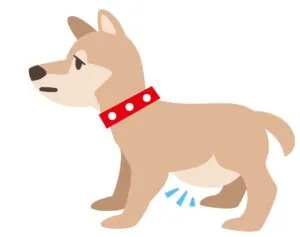Intestinal parasites, commonly known as worms, are an unwelcome but often unavoidable reality for many pet owners. While they come in various forms and sizes, each species can significantly impact your dog’s health and development. A crucial question many pet parents have is: Can Worms Cause Vomiting And Diarrhea In Dogs? The answer is a resounding yes, and these are among the most common and distressing symptoms of an internal parasitic infection. Beyond causing discomfort, an infected dog can also pose a risk to other vulnerable pets and, in some cases, even humans.
Recognizing the signs of worms early is vital for your pet’s well-being. Fortunately, with prompt veterinary diagnosis, appropriate treatment, strict hygiene, and regular preventive measures, intestinal parasites are typically manageable. Once your dog is dewormed, ongoing parasite prevention, including monthly broad-spectrum dewormers and biannual fecal tests, is essential to minimize future infection risks. Understanding these key indicators will empower you to act quickly if you suspect your canine companion has intestinal worms.
Understanding Vomiting and Diarrhea Caused by Intestinal Worms
Vomiting and diarrhea are not only common signs of a parasitic infection but also among the most concerning for pet owners. These symptoms often signal significant gastrointestinal distress, directly resulting from worms irritating or obstructing the digestive system.
How Worms Lead to Vomiting in Dogs
When a dog harbors a heavy worm burden—meaning a large population of parasites—it can lead to considerable gastrointestinal irritation and upset, frequently manifesting as vomiting. Roundworms, in particular, can grow large and numerous enough to physically block a dog’s intestine. This blockage prevents the normal passage of food and digesta, causing a backflow of stomach contents and subsequent vomiting. In some severe cases, live adult worms may even be expelled in the vomit. It’s also worth noting that during a veterinarian-prescribed deworming treatment, mild vomiting can occur as the body expels dead or dying worms.
The Connection Between Worms and Diarrhea in Dogs
Diarrhea is another prevalent symptom of canine intestinal worms. Certain parasites, such as whipworms (Trichuris vulpis), attach themselves to the lining of the large intestine and colon, causing significant irritation and inflammation. This irritation can lead to watery, sometimes bloody or mucous-filled (mucoid) diarrhea. Hookworms also damage the intestinal lining, disrupting nutrient absorption and causing irritation that can result in diarrhea.
Beyond true worms, other single-celled intestinal parasites like Giardia and Coccidia are also frequent causes of parasite-induced diarrhea. The irritation, inflammation, and damage to the pet’s intestinal walls from these parasites prevent proper nutrient absorption, leading to weight loss and malnutrition, especially in vulnerable puppies and kittens. Persistent diarrhea also leads to dehydration, further weakening an infected dog. For comprehensive prevention, discuss a combined flea and worm treatment for dogs with your vet.
 Dog vomiting and diarrhea
Dog vomiting and diarrhea
Other Key Signs Your Dog May Have Intestinal Parasites
While vomiting and diarrhea are critical indicators, several other signs can point to a parasitic infection. Being aware of these symptoms can help you identify a potential problem early.
Visible Worms in Stool or Around the Anus
Perhaps the most alarming sign for any pet owner is seeing worms directly. Two common worm species you might spot in your dog’s stool are roundworms (Toxocara spp.) and tapeworms (Dipylidium caninum). Roundworms typically resemble pieces of spaghetti, while tapeworms appear as small, segmented packets that look like grains of rice. These tapeworm segments are technically egg packets, not whole worms, and are commonly seen in feces. They may also be found clinging to the hair around your dog’s anus or under their tail. If you notice these unwelcome guests, even after administering worms in dog poop after heartworm medicine, it’s crucial to consult your veterinarian.
 Worms in dog poop
Worms in dog poop
Weight Loss Despite a Healthy Appetite
As discussed, some intestinal parasites, including whipworms and hookworms, damage the delicate lining of a dog’s intestines. This fragile, single-cell layer is responsible for absorbing essential nutrients from digested food and transferring them into the bloodstream. When this tissue is compromised by worms, nutrients are not properly absorbed, even if your dog is eating ravenously. Consequently, a dog with a significant worm burden may eat a lot but still lose weight and appear thin.
 A skinny dog
A skinny dog
Dull or Dry Coat
A dog’s skin and coat condition are often a direct reflection of their overall internal health. When intestinal parasites hinder nutrient absorption, one of the visible consequences can be a dry, brittle, or visibly dull haircoat. Pet owners might attempt to improve the coat through dietary supplements or specialized grooming products, but these efforts will be largely unsuccessful if the underlying issue of nutrient malabsorption due to worms is not addressed.
Scooting or Licking the Hind End
Rice-like tapeworm segments, which are egg packets, can pass in your dog’s stool and cause uncomfortable itching and inflammation around the anus. To relieve this irritation, your dog may scoot their hind end along the ground, drag it, or excessively lick the area. While other conditions, such as anal sac impaction, can also cause these behaviors, a quick check under your dog’s tail might reveal visible tapeworm segments. This is a clear indicator that a visit to the vet is in order.
Bloated or Potbellied Appearance
Abdominal swelling or distention, commonly referred to as a “potbelly,” is a classic sign of roundworm infection, particularly in severely affected puppies and kittens. In cases of high-volume infections, roundworms can become so numerous and large that they visibly alter a young pet’s shape, creating a bloated or distended appearance. This distention can be painful for the pet and may lead to loss of appetite, vomiting, and, in severe cases, intestinal blockages.
 Pot-bellied dog
Pot-bellied dog
Lethargy and Weakness
Infected pets, especially puppies and kittens, may exhibit signs of weakness, fatigue, or significantly low energy. They might be less inclined to play or interact normally, preferring instead to sleep more than usual. This parasite-induced lethargy can stem from a combination of ongoing nutrient malabsorption, dehydration resulting from persistent vomiting or diarrhea, or anemia (a low red blood cell count) caused by hookworm infection.
Hookworms (Ancylostoma spp.), as their name suggests, possess hook-like mouthparts that bite into and feed on the intestinal lining, drawing blood. These blood-sucking parasites can cause severe, life-threatening anemia, particularly in young animals. Since red blood cells are crucial for transporting oxygen throughout the body, anemic pets will appear visibly weak and lethargic. When considering prevention, owners often look for options like cheap heartworm and flea medicine for dogs to address multiple threats.
 Lethargic pet
Lethargic pet
When to See Your Veterinarian
If you observe any of these signs, particularly vomiting and diarrhea, it’s essential to contact your veterinarian. While seeing a few worms in your dog’s stool can be alarming, it’s not always an immediate veterinary emergency if your pet is otherwise behaving normally. However, severe symptoms like persistent vomiting, bloody diarrhea, extreme lethargy, or noticeable abdominal pain warrant prompt professional attention. Your veterinarian can accurately diagnose the type of parasite through a fecal examination and prescribe the most effective deworming treatment.
For puppies, proper care and prevention are especially crucial. While you might consider over the counter flea medicine for puppies, always consult your vet for a comprehensive parasite control plan, which will include deworming. Regularly scheduled veterinary check-ups and ongoing parasite prevention are the best defenses against these common pet ailments.
Conclusion
Understanding that worms can cause vomiting and diarrhea in dogs is the first step toward effective pet care. Intestinal parasites are a common health concern for dogs, but recognizing the symptoms—from visible worms and digestive upset to weight loss, dull coat, scooting, and lethargy—allows for timely intervention. Prioritizing regular veterinary check-ups, adhering to prescribed deworming schedules, and maintaining good hygiene are critical for preventing and managing parasitic infections. By staying vigilant and working closely with your veterinarian, you can ensure your beloved canine companion remains healthy, happy, and free from the discomfort of worms.
References
- American Veterinary Medical Association (AVMA)
- Companion Animal Parasite Council (CAPC)
- Veterinary internal medicine textbooks and publications
- Consultation with certified veterinarians
